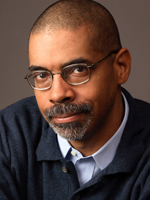
Recent news stories about how Hillary Clinton is the heavy betting favorite in Europe to win the presidency in 2016 raises a question: Why isn't gambling on elections allowed in the U.S.? After all, with money riding on the outcome, a lot more people would surely go to the polls.
There is likely a lot of pent-up demand. ABC News quotes a Las Vegas oddsmaker on the stakes: "It would be the type of money that we write on Super Bowl Sunday." And the electronic prediction markets currently barred under U.S. law may be more accurate than even the most respected polls and number crunchers.
Election wagers are legal in many jurisdictions. Some $150 million was bet on the recent election in the U.K. One needn't be a bookmaker to guess that U.S. wagering would be many times that amount. As recently as 2012, it was possible for Americans to make online bets on U.S. elections in overseas markets, but the federal government's lawsuit against Ireland-based Intrade in 2012 — which led to the firm's collapse months later — largely put an end to that practice.
That suit, brought by the Commodity Futures Trading Commission, rested on the contention that Intrade was in effect selling options contracts outside an approved exchange. But the larger fear when it comes to betting on election results is corruption. The annals of the 19th century judiciary are rich with prosecutions for the practice, including a Pennsylvania case in which the court ruled that voters could bet on primary but not general elections, and a Delaware case in which the court refused to enforce an election bet on the ground that enforcement would be "hurtful to society" because of a tendency to corrupt "the due administration of government."
Nevertheless, throughout the 19th century, laws against gambling on the ballot were routinely broken. Bettors took pride in their successes. According to his biographer, onetime Republican king-maker Harry Daugherty (who helped make Warren Harding president) boasted "that his wager on James Garfield in the 1880 presidential election enabled him to finish school in 'good style.'"
The economists Paul W. Rhode and Koleman Strumpf, in an illuminating article in The Oxford Handbook of the Economics of Gambling, tell us that election betting was common in the years before the Civil War. In 1816, for instance, James Buchanan "lost three tracts of land in northwest Pennsylvania on an election wager" — land on which oil would later be discovered. Betting on the 1876 presidential election was so heavy that a stakeholder named John Morrissey handled some $350,000 in bets (nearly $8 million in 2014 dollars), money he was forced to return when the outcome remained uncertain.
In the 1916 contest, according to The New York Times, wagers on Wall Street's outdoor "curb exchange" totaled about $160 million (in 2007 dollars). Even today, with such betting banned in the U.S., wagering on the 2016 election by foreigners could reach the hundreds of millions.
Legalized election betting would certainly lead to higher turnout. It's just that we seem to think it would be the wrong kind of turnout. In this belief we're every bit as prim as our forebears. A 1902 handbook on civics for the New York public schools put the point succinctly: "Betting upon election disqualifies a person from voting, his interest to win the bet being assumed to be greater than to secure the election of the person best qualified."
There is something deliciously quaint about the notion that voters won't vote their own self-interest. One is reminded of Brown v. Hartlage, the 1982 Supreme Court decision involving a candidate for county commissioner in Kentucky who promised to reduce his salary if elected, and thereby ran afoul of a state statute prohibiting the promise of anything of value in exchange for a vote. Justice William Brennan, writing for the Court, had no trouble holding that the candidate's promise was protected speech: "The fact that some voters may find their self-interest reflected in a candidate's commitment does not place that commitment beyond the reach of the First Amendment."
I'm not suggesting that election markets are protected by the First Amendment. But given that candidates routinely promise the proverbial chicken in every pot, it is more than passing strange that the self-interested voter is considered a potential menace to democracy. As Brennan wrote, "Our tradition of political pluralism is partly predicated on the expectation that voters will pursue their individual good through the political process, and that the summation of these individual pursuits will further the collective welfare."
I'm not sure why wanting to win a bet is a less noble motive for voting than wanting to maximize a tax cut or a benefit check. Certainly allowing election wagers is a kinder, gentler solution to the turnout problem than punishing those who don't go to the polls.
Commonwealth v. Wells (1885) Porter v Sawyer (1837) According to a 1940 story in Popular Mechanics, the curb exchange odds in 1916 were 10-7 in favor of Republican Charles Evens Hughes over Democrat Woodrow Wilson. Many Hughes supporters refused to accept the news that their candidate had lost, blaming the press for a supposed pro-Wilson bias. Charles William Bardeen, A Manual for Civics for New York Schools (Syracuse, N.Y.: C. W. Bardeen, 1902), pp 160-161. The argument remains the same even if you believe, as most scholars do, that social science research has long ago demolished this notion.
Stephen CarterBloomberg News
(TNS)
Comment by clicking here.


 Contact The Editor
Contact The Editor
 Articles By This Author
Articles By This Author
